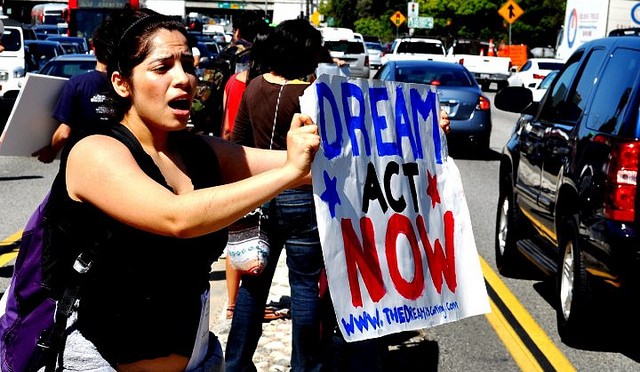Think back to your junior year of high school. Remember the things that made your blood boil: what you really cared about. Have it? Now write down some words that come to mind. Just take about 2 minutes to do this exercise.
Now look at the list. What do you notice? Who are you now compared with that person?
Chances are you disregard yourself as naïve or foolish. Current You is so much wiser and Younger You, well, was a bit of a douche. We disregard our younger selves as easily as we disregard the youth around us.
What did I come up with? I thought about how Younger Me would be righteously pissed at Current Me.
Of course I am more experienced and knowledgeable than younger me, but I have also squandered potential. I have avoided what I really cared about.
Every teenager cares about social standing and relationships and sex. Definitely the sex. But few teens only care about these things, and even fewer really care about these first. That stuff is mostly hormones. In fact, it seems to me that youth are more likely to really care about real things than adults. And adults use the platform of sex and status to ignore what it is that youth really care about.

Looking back, I have come up with the three things I cared the most about:
- Youth initiative and influence. I wanted youth to have a real voice in local and national politics because their needs are nearly universally ignored and their insights dismissed like a court case brought with no standing.
- Inequality in all its forms. This includes economic and social. I was particularly interested in poverty, creating systems of greater justice, and helping minority groups gain power and influence.
- The Environment. I cared for preserving the environment and reversing the effects of global climate change. Of course, back then we were concerned with the hole in the ozone layer, but the concepts were the same.
This is what I believed in the mid 1990s. What did I do as I got older? I went to college, then grad school, then work, then seminary, then professional ministry. Two parts of Current Me are the same as Younger Me: 1) I still believe in these three issues deeply and 2) for all my greater wisdom, I have done little about them and still feel powerless to change them.
The problem with the Wisdom Fallacy is that we act as if wisdom begets more reasonable action, when what it brings is an increased likelihood of inaction. And what have I gained in wisdom by doubling my age? The continued belief in those very things I valued most.
In reading the recent story about a governor and a school condemning a teen for tweeting that her governor sucks, the ensuing apology from the governor, and the earlier example of a high school student challenging would-be presidential candidate Michelle Bachmann to a debate, I was struck by one glaringly obvious thought:
What if these teens are right?
What happens to our precious worldview and all that stuff we hold as normative about the world and about ourselves, when people a fraction of our age are right and we are wrong? And our entire reason to disregard them is predicated on our being more likely to be right? What happens to our social fabric if all of these great thinkers with all of their wisdom and experience come to a weaker conclusion than a 16 year-old?
Should we not trust the most obvious truth: that our bias against youth prevents us from seeing even the most rational things about our society? That it is unequal, that many of our leaders are idiots, and that we skew our system to benefit us, rather than what’s best for all. It is long past time we trusted other people with our future.
© 2011 Drew Downs. All rights reserved
Related articles
- The Youth Are Not the Future (ummahstartswithu.com)

Leave a Reply